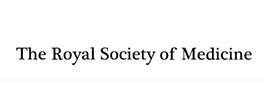
I attended the Neurology Training day at the Royal Society of Medicine (RSM) and it was very informative and enjoyable. The programme had a varied range of speakers and covered a spectrum of topics from the neurology training curriculum. The lectures were aimed at internal medicine trainees as well as neurology registrars and GP/generalist level trainees. The speakers were excellent and each lecture was delivered at a very high level with time for question and discussion. The programme was led by the current president of the Clinical Neurosciences section at RSM, Mr Hyam, who also gave a lecture during the afternoon session.
Epilepsy and loss of consciousness
Dr Al-Mayhani
This lecture was given by Dr Al-Mayhani, an epileptologist. He delivered this engaging lecture virtually. It was a very interesting and detailed lecture which covered a huge topic in a very succinct and digestible way. He went through the vast causes of transient loss of consciousness, reinforcing the need for history and collateral. He discussed immediate investigations and management. He went through seizures as provoked versus unprovoked and how that affects the management and decision to start anti-epileptic treatment.
Intracranial tumours
Mr Vaqas
This lecture was very interesting and it was exciting to hear about all the potential for the treatment of brain tumours. Mr Vagas discussed the classification of various types of brain tumours and how they are treated. He discussed the difficulty when managing these patients – deciding when/if to biopsy, the rationale for seeking full resection where possible and other important principles. He also spoke a lot about the future – including the vast array of genetic profiles of brain tumours and how this will continue to advance as technology advances, and allow us to treat previously “untreatable” brain tumours. He also suggested future testing even in the form of blood tests to perform genetic profiling.
Transient Visual Loss
Dr Gordon Plant
This lecture was by the legendary Dr Plant, who is an expert in the field of neuro-ophthalmology and a truly excellent lecturer and teacher. He went through the differentials for monocular vs binocular transient visual loss, discussed vasospasm in migraines and also spent time discussing the diagnostic difficulty that can occur with differentiating embolic cause vs migraine in some situations.
Nerve root compression in degenerate spine for neurologists
Mr Jonathan Hyam
Mr Hyam gave this lecture on the presentations of nerve root compression and how this can be approached clinically in terms of imaging and subsequent management. He gave a great anatomy refresher and reinforced the need for knowledge of myotomes and dermatomes. The slides were excellent, there was great explanation of imaging findings which was also useful.
Disorders of the autonomic nervous system
Professor Valeria Iodice
This was an amazing lecture that covered so much breadth of autonomic diseases. It started from the basics – explaining what the autonomic system is, and then became progressively more detailed. The scope of autonomic testing itself was incredible to learn about. Professor Iodice discussed how autonomic dysfunction vs failure presents in different neurological diseases – sometimes co-existing for example with neurodegenerative disease and sometimes as its own entity such as in autoimmune autonomic failure conditions. The discussion of the current trials and treatments was also very interesting.
A review of case series in cerebrovascular disease
Dr Chinedu Maduakor
I really enjoyed this lecture and found the “case-based” style of teaching very easy to follow and memorable. Dr Maduakor is a vascular neurologist at St Georges and she discussed important concepts in stroke management through cases that she has encountered. She chose a range of cases which sought to exemplify important topics in the treatment of both ischaemic and haemorrhagic stroke, including incorporating current trials and evidence from these. She also spoke about cerebral venous sinus thrombosis and stroke in patients with sickle cell disease. The lecture was very engaging and the slides were also very informative with excellent imaging.
